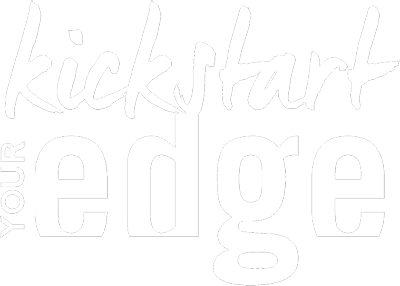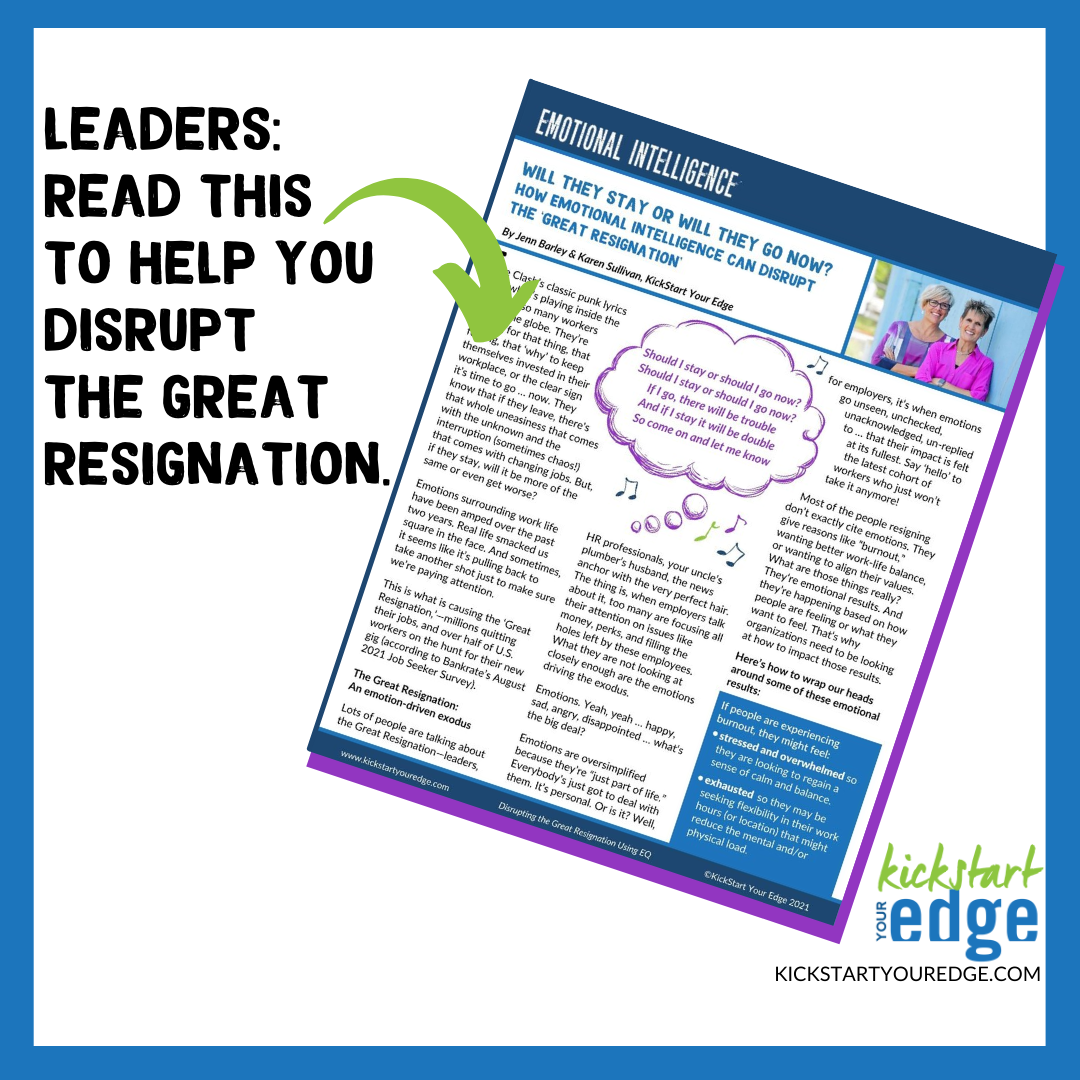
Should I stay or should I go now?
Should I stay or should I go now?
If I go, there will be trouble
And if I stay it will be double
So come on and let me know
The Clash’s classic punk lyrics echo what’s playing inside the heads of so many workers across the globe. They’re looking for that thing, that feeling, that ‘why’ to keep themselves invested in their workplace, or the clear sign it’s time to go … now. They know that if they leave, there’s that whole uneasiness that comes with the unknown and the interruption (sometimes chaos!) that comes with changing jobs. But, if they stay, will it be more of the same or even get worse?

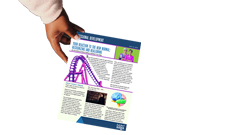
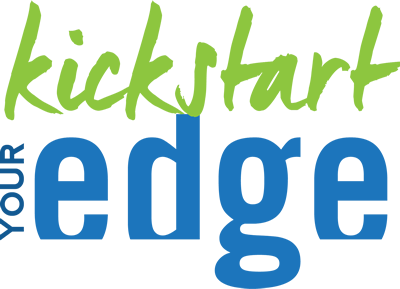
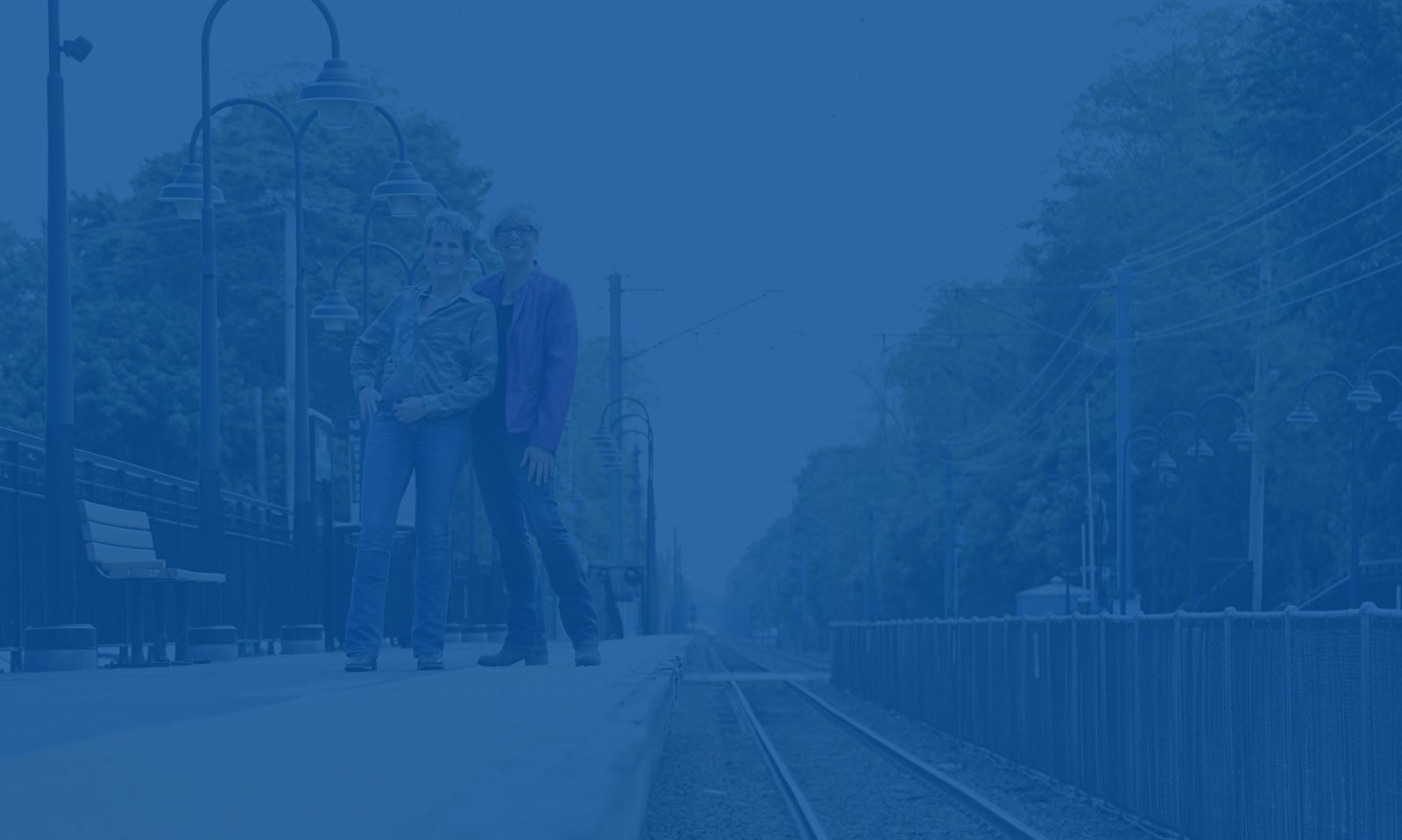
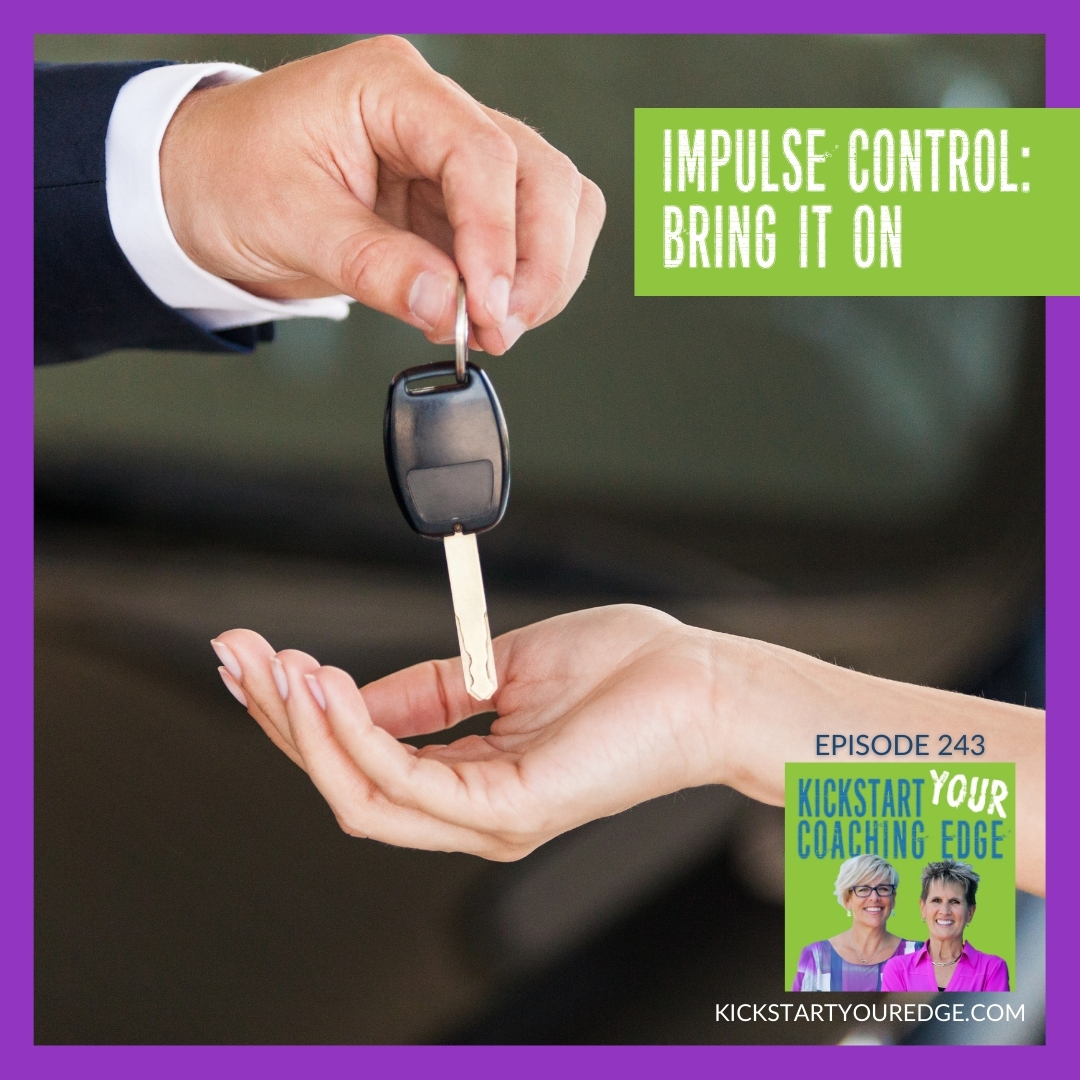 Let’s do it! Add to cart. Bring it on. IF it’s high reward, low aggravation. Otherwise, don’t. We’re dissecting Karen’s impulse control (and her lack of it in many cases). In this episode, we’re looking at how impulse control is driven by emotions. Why does it show up in some places and not others? Let’s have a look at why that’s important and how we should be coaching around it.
Let’s do it! Add to cart. Bring it on. IF it’s high reward, low aggravation. Otherwise, don’t. We’re dissecting Karen’s impulse control (and her lack of it in many cases). In this episode, we’re looking at how impulse control is driven by emotions. Why does it show up in some places and not others? Let’s have a look at why that’s important and how we should be coaching around it. 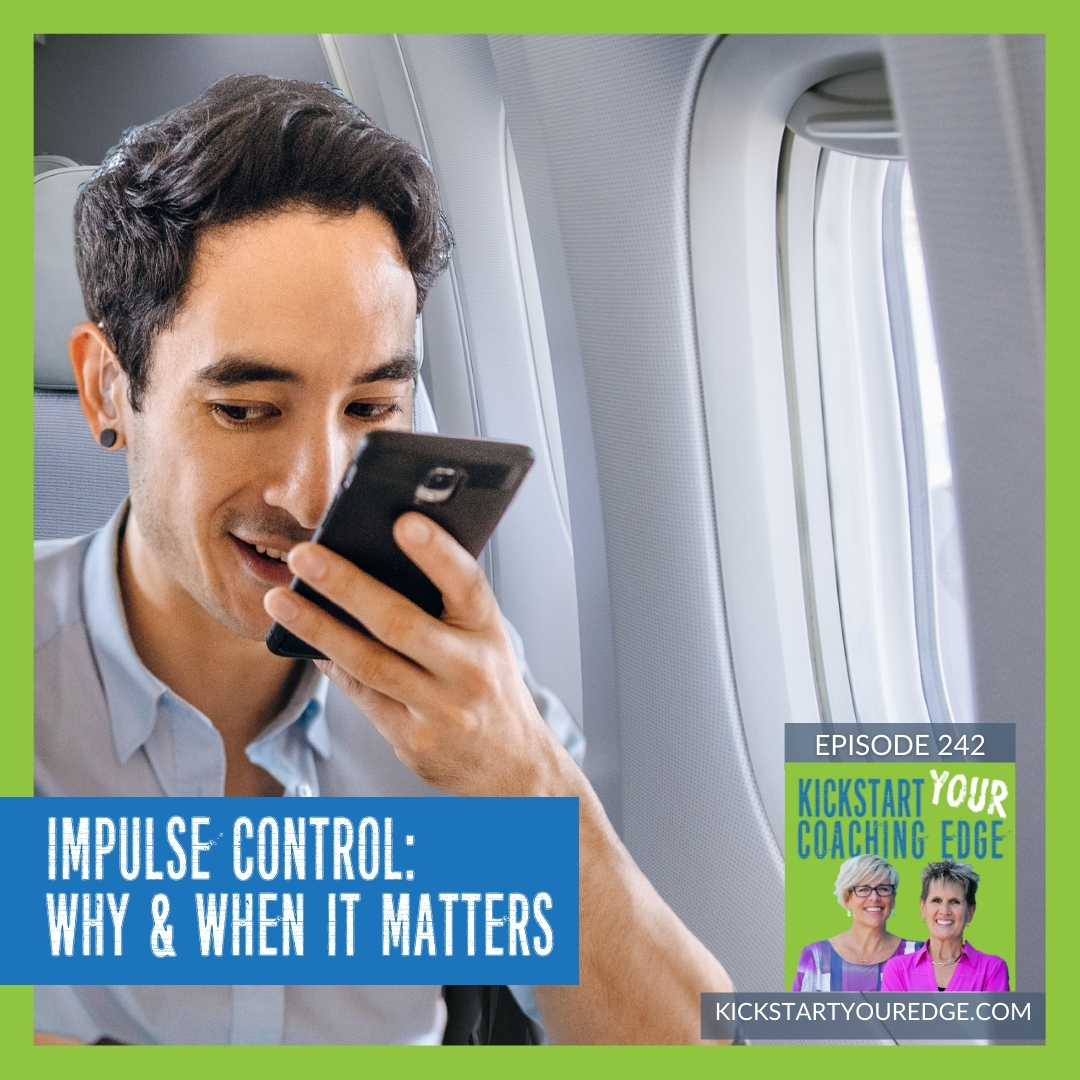 Can’t NOT say something? Got no filter? Do you need one? This episode is all about the emotional intelligence skill of impulse control. And what you’ll learn is that there is a Grand Canyon-like range of results here. Sometimes high impulse control is a good thing, sometimes it’s not. You’ll see how it plays into decision making, big risks, getting stuck, and some serious regret.
Can’t NOT say something? Got no filter? Do you need one? This episode is all about the emotional intelligence skill of impulse control. And what you’ll learn is that there is a Grand Canyon-like range of results here. Sometimes high impulse control is a good thing, sometimes it’s not. You’ll see how it plays into decision making, big risks, getting stuck, and some serious regret.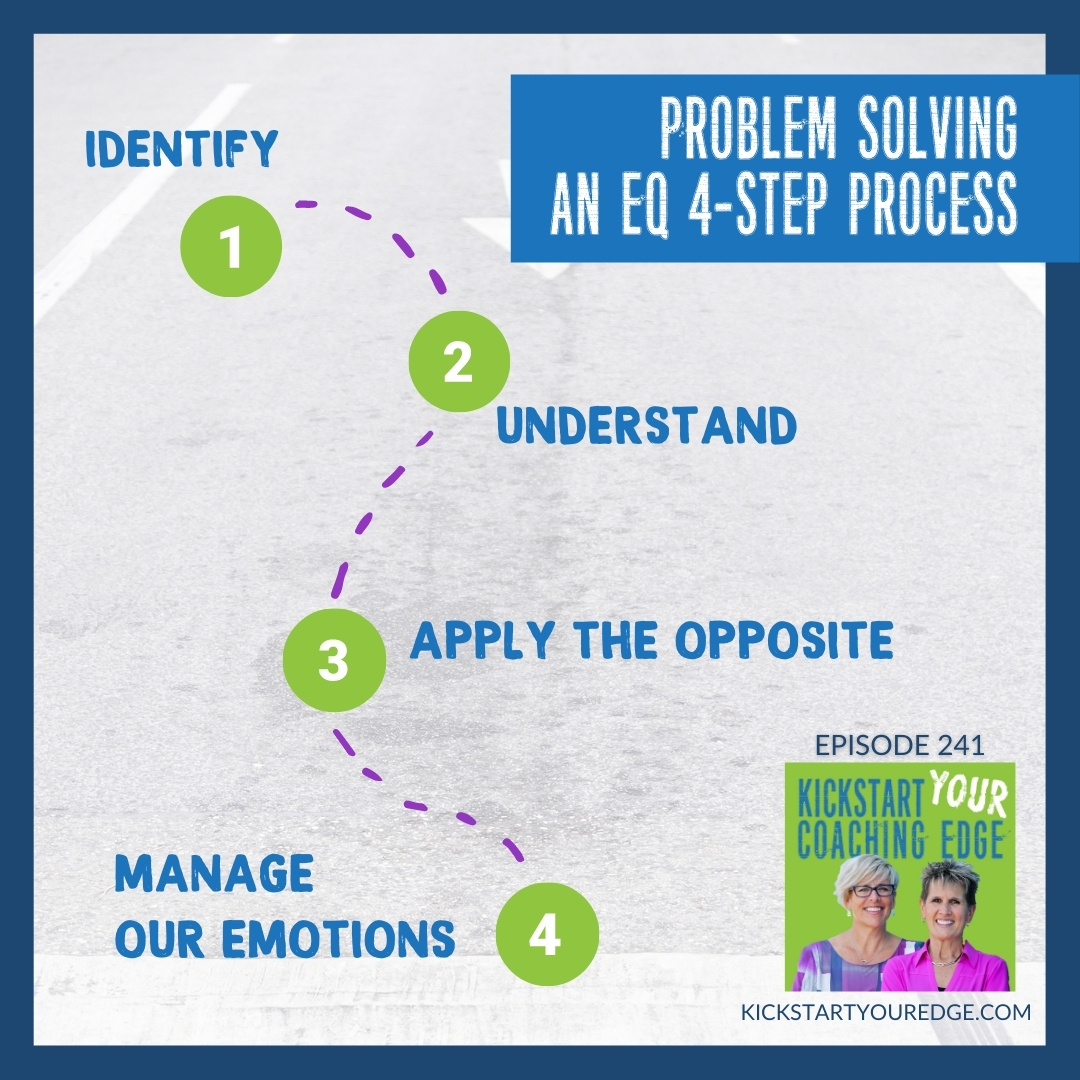 As promised, coach, we’re comin’ at you with our four-step emotional intelligence process when it comes to problem-solving. Yes! It’s like a roadmap! We’re going to walk you through these steps with a few examples so you can think about how you would coach around it.
As promised, coach, we’re comin’ at you with our four-step emotional intelligence process when it comes to problem-solving. Yes! It’s like a roadmap! We’re going to walk you through these steps with a few examples so you can think about how you would coach around it. 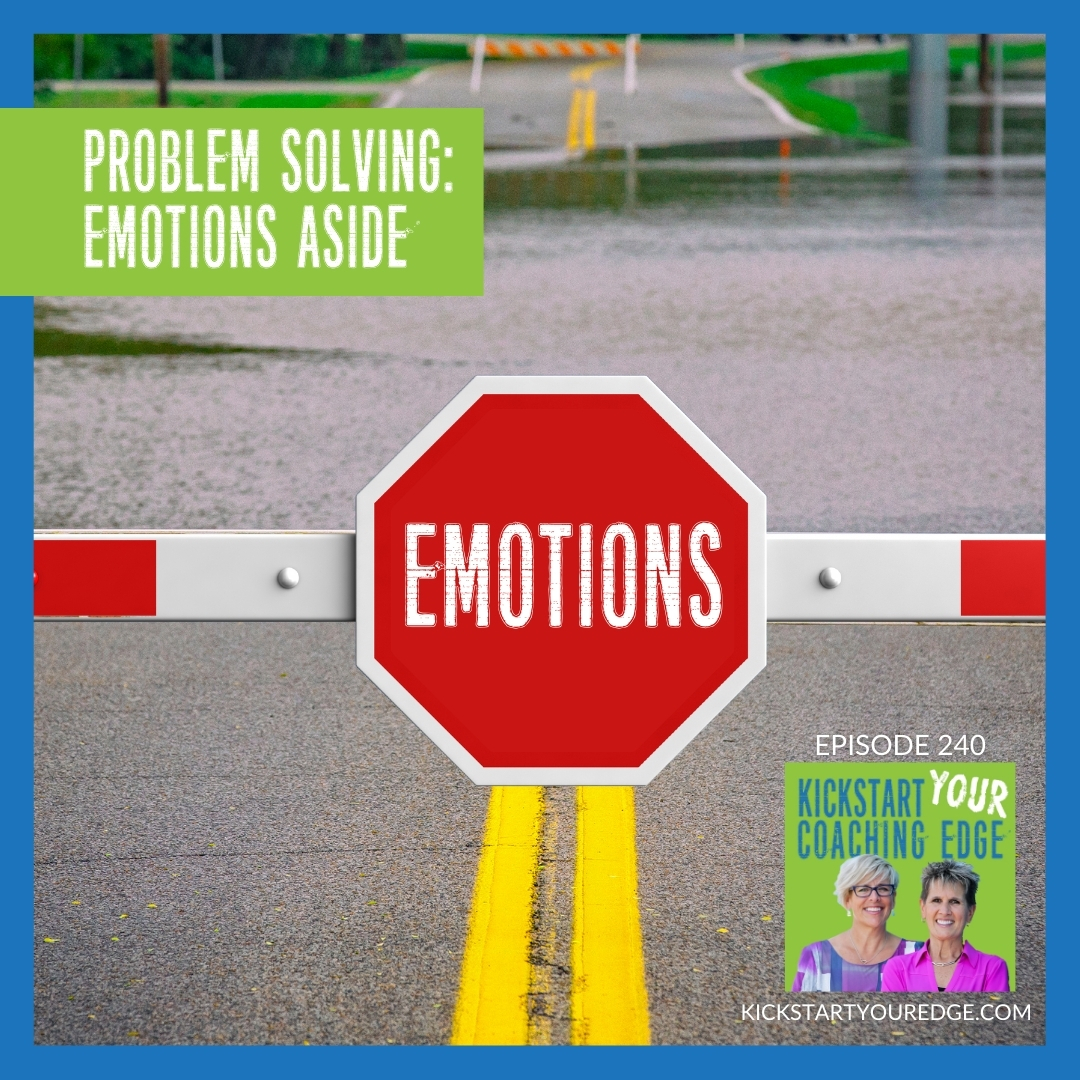 Emotions getting in the way of understanding the real problem? Think about it… which “problems” are you working on that don’t have emotions tied to them? Aha! So what to do, coach? Here’s another emotional intelligence wake-up call. In this episode, we’re talking about separating the emotions and getting real about what’s triggering them.
Emotions getting in the way of understanding the real problem? Think about it… which “problems” are you working on that don’t have emotions tied to them? Aha! So what to do, coach? Here’s another emotional intelligence wake-up call. In this episode, we’re talking about separating the emotions and getting real about what’s triggering them. 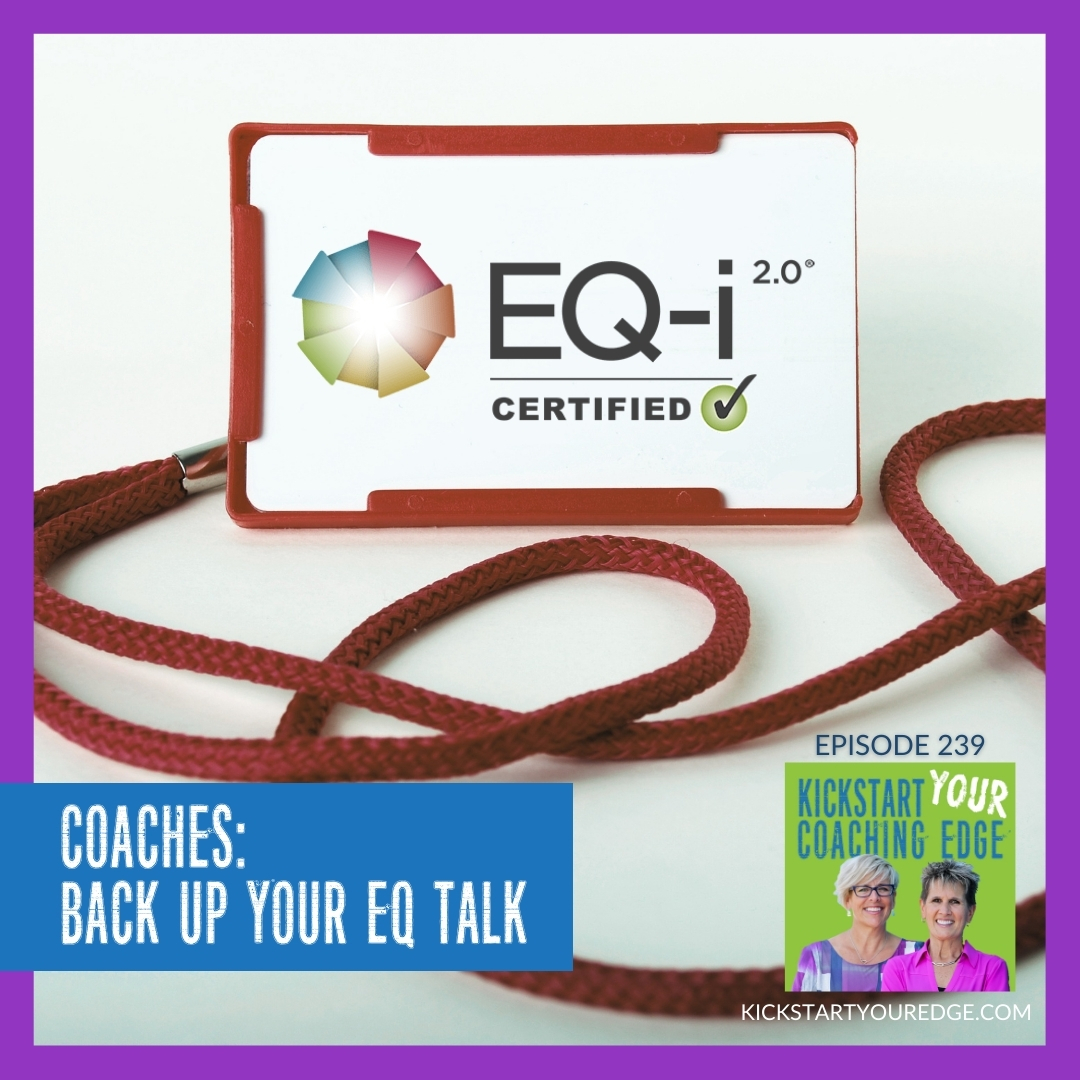 Did you know EQ (emotional intelligence) is four times more powerful than IQ in predicting workplace success? Shut the front door! Yep… it’s the skillset that gets you understanding your emotions and your behavior, and EQ is what helps you understand the impact of your emotions on those around you. Top organizations need it, and YOU should be coaching it. In this episode, we’re talking about why you should be EQ-i 2.0 certified.
Did you know EQ (emotional intelligence) is four times more powerful than IQ in predicting workplace success? Shut the front door! Yep… it’s the skillset that gets you understanding your emotions and your behavior, and EQ is what helps you understand the impact of your emotions on those around you. Top organizations need it, and YOU should be coaching it. In this episode, we’re talking about why you should be EQ-i 2.0 certified. 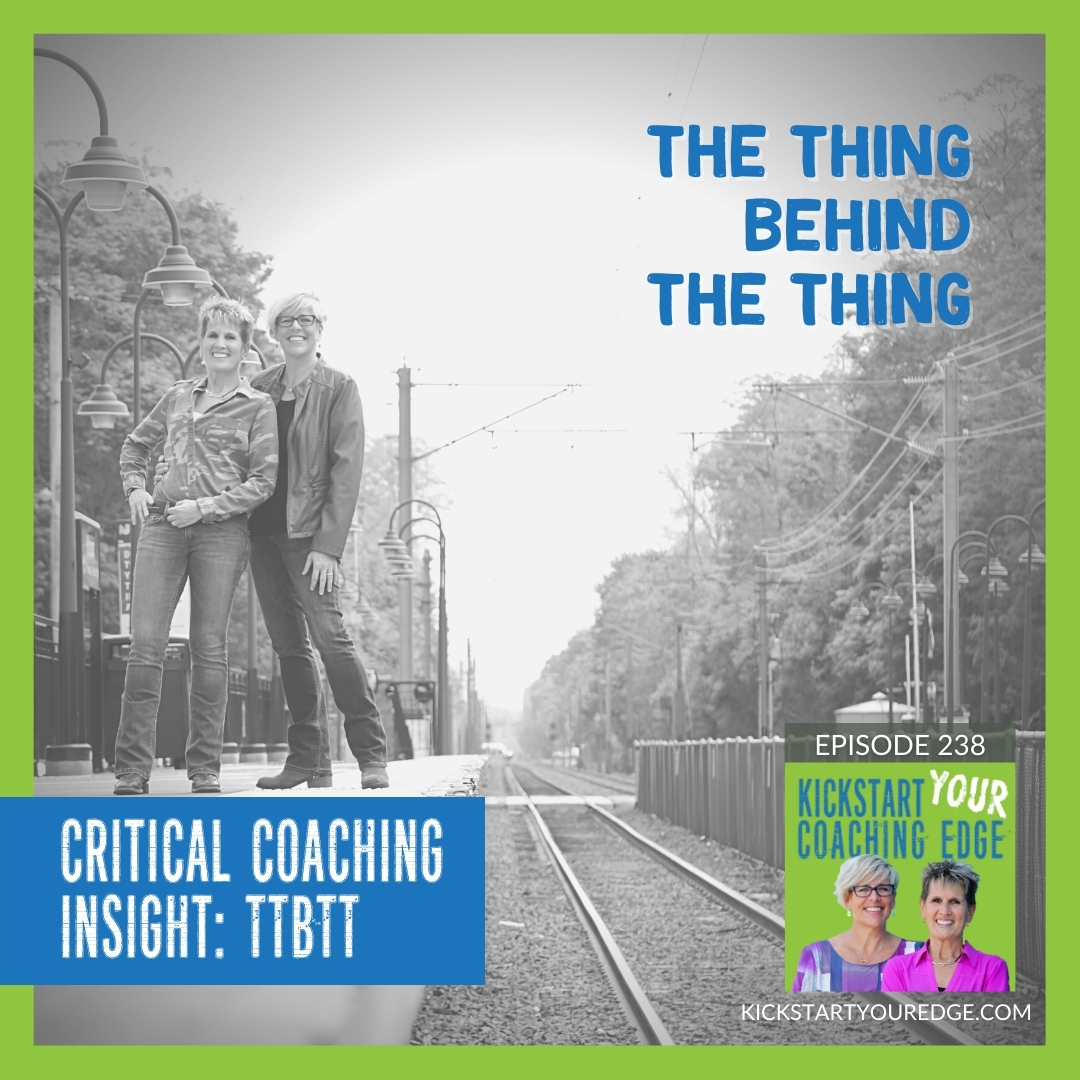 Coaches! Getting to The Thing Behind the Thing (TTBTT) is critical. Unearthing whatever the THING is – not the story – not the “wants” and “ifs” –will deliver the kind of change your clients need. This episode is the audio from our recent Facebook Live. It’s a bit longer than usual but hang with it, there’s so much insight to be had.
Coaches! Getting to The Thing Behind the Thing (TTBTT) is critical. Unearthing whatever the THING is – not the story – not the “wants” and “ifs” –will deliver the kind of change your clients need. This episode is the audio from our recent Facebook Live. It’s a bit longer than usual but hang with it, there’s so much insight to be had. 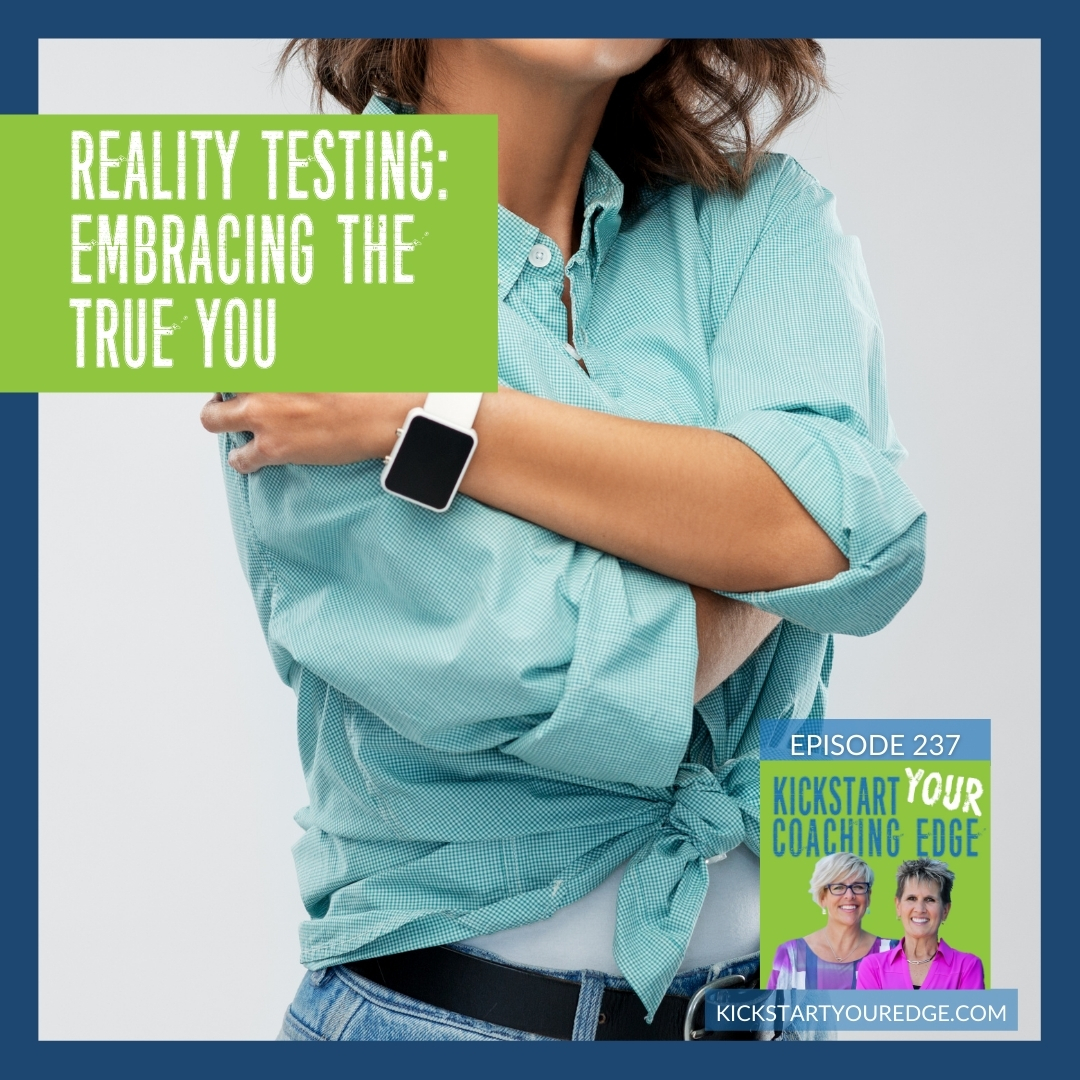 No, you can’t do it all … well. There’s some reality we all can stand to wrap our heads around. Highly developed emotional intelligence means we understand how we show up in the world – where we shine and where we could use a little polish. We’re looking at another side of reality testing in this episode … looking at the reality of our strengths and weaknesses as a coach.
No, you can’t do it all … well. There’s some reality we all can stand to wrap our heads around. Highly developed emotional intelligence means we understand how we show up in the world – where we shine and where we could use a little polish. We’re looking at another side of reality testing in this episode … looking at the reality of our strengths and weaknesses as a coach. 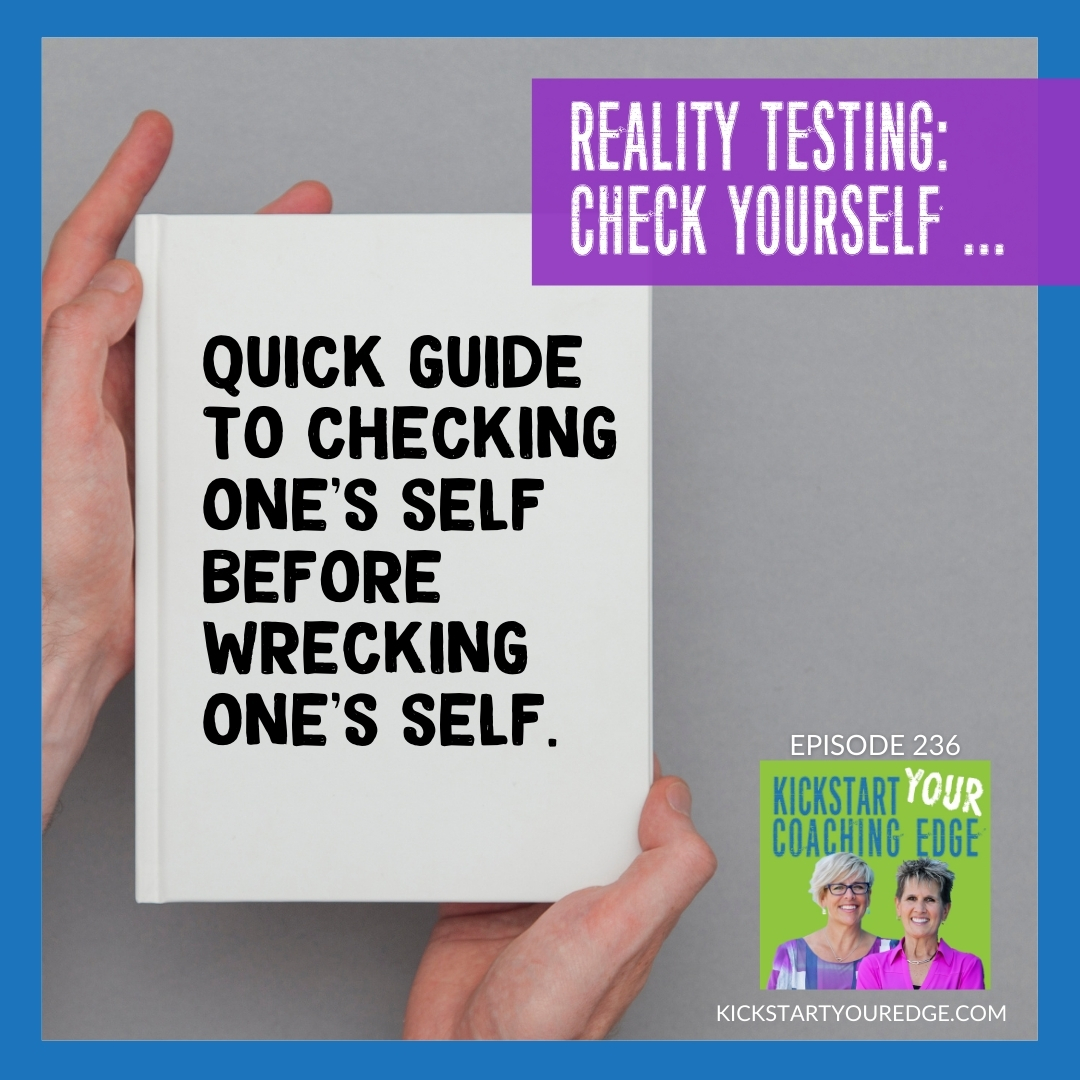 When you’re pissed and ready to go off! … How do you check yourself before you wreck yourself (as the nineties kids might say)? In this episode, we’ve got a question exercise for you coaches that will absolutely help you or your clients who might be frustrated or triggered. This is about walking through reactions objectively. And it’s all about emotions, people.
When you’re pissed and ready to go off! … How do you check yourself before you wreck yourself (as the nineties kids might say)? In this episode, we’ve got a question exercise for you coaches that will absolutely help you or your clients who might be frustrated or triggered. This is about walking through reactions objectively. And it’s all about emotions, people.
